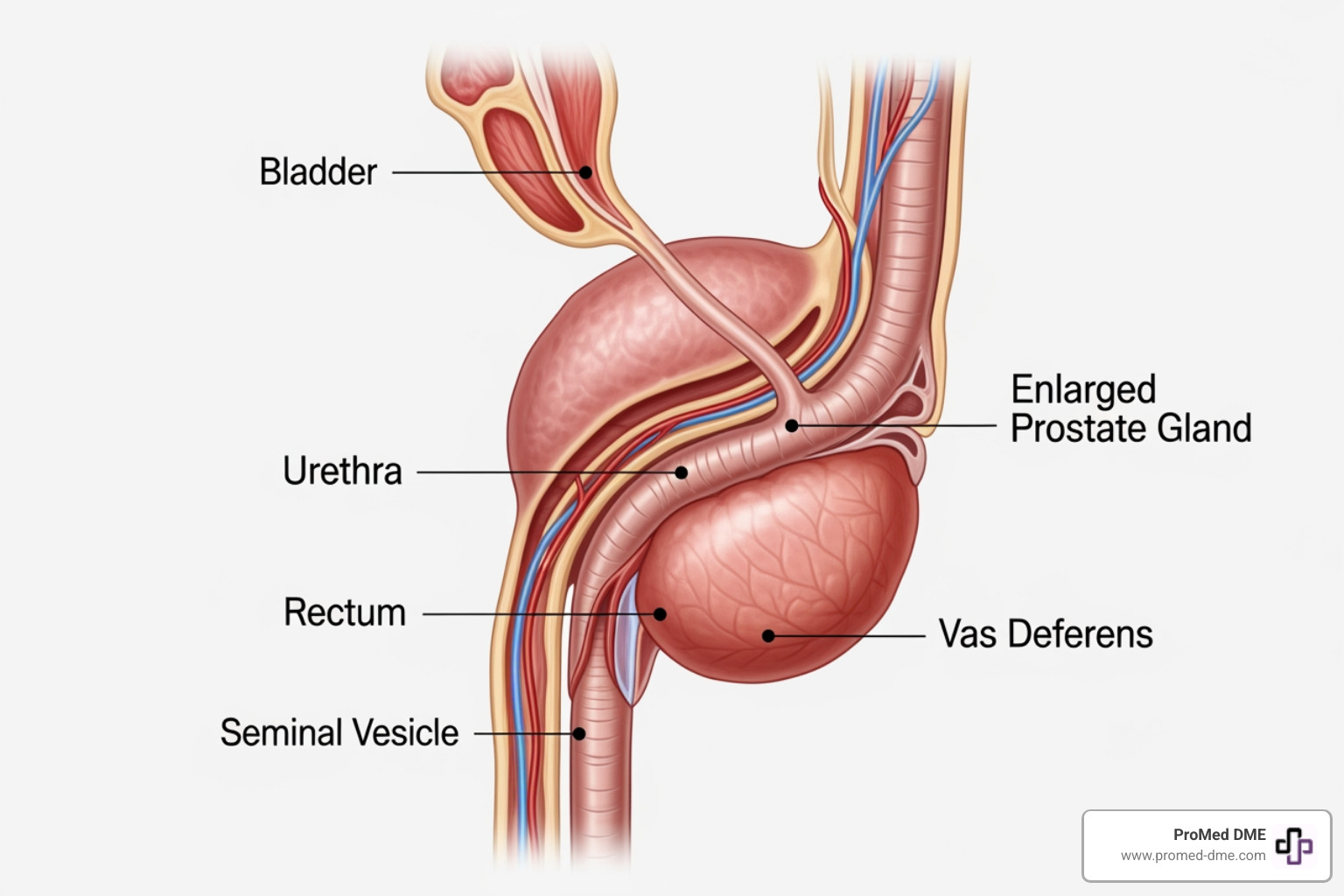Decoding Medicare: Are Incontinence Supplies Covered?

Does Medicare pay for incontinence supplies? If you were hoping for a simple "yes" or "no," brace yourself. The answer is, it’s complicated.
- Original Medicare (Parts A & B): Generally, no coverage for incontinence supplies like pads or adult diapers.
- Medicare Advantage (Part C): Some plans might offer extra benefits, including incontinence supplies. Check your specific plan details.
Just because Medicare seems tight-fisted with incontinence supplies doesn't mean you’re out of options. Understanding what's covered under Original Medicare and what might be included in Medicare Advantage plans can ease the journey. The road to finding the right support doesn’t have to be overwhelming.
As we solve Medicare’s stance on incontinence supplies, there might be an alternative path. Turning to Medicare Advantage could be a smart move, potentially providing the extra coverage you need. And don't forget, other resources like Medicaid may be there to assist as well.
Does Medicare Pay for Incontinence Supplies?
When it comes to incontinence supplies, navigating Medicare's coverage options can feel like a maze. Let's break it down into bite-sized pieces to make it easier to understand.
Original Medicare Coverage
Original Medicare, which includes Part A and Part B, generally does not cover incontinence supplies. This includes items like adult diapers, pads, or liners. Here's why:
Part A focuses on hospital insurance, covering inpatient hospital stays, care in a skilled nursing facility, hospice care, and some home health care. Incontinence supplies don’t fit into these categories.
Part B covers outpatient care, preventive services, and some home health services. It also pays for durable medical equipment (DME), but only if the items are long-lasting, used for a medical reason, and not typically useful to someone who isn’t sick or injured. Unfortunately, disposable incontinence products don’t meet these criteria and are not covered.

Medicare Advantage Plans
Medicare Advantage (Part C) plans are offered by private companies approved by Medicare. They must cover everything Original Medicare does but often include extra benefits. This is where things get interesting:
Extra Benefits: Some Medicare Advantage plans might offer coverage for incontinence supplies. It's like a bonus round in your healthcare coverage.
Coverage Options: Each plan is different, so it's crucial to dig into the details. Some plans might cover certain incontinence products, while others may not. Always check with your provider to understand what your specific plan offers.
While Original Medicare leaves much to be desired in terms of incontinence supplies, Medicare Advantage could provide the extra support you need. It's essential to review your plan details or consider switching to a plan that better suits your needs.
In the next section, we'll explore alternatives to Medicare coverage, including Medicaid and other resources that might help lighten the load of purchasing incontinence supplies.
Alternatives to Medicare Coverage
When Medicare doesn't cover what you need, don't worry—there are other options out there. Let's explore some alternatives that can help cover the cost of incontinence supplies.
Medicaid and Dual Eligibility
If you're eligible for Medicaid, you might be in luck. Medicaid often covers incontinence supplies, but the specifics can vary by state. Each state has its own rules about what's covered and who qualifies. This means that in one state, you might get full coverage, while in another, you may face copayments or restrictions.
For those who qualify for both Medicaid and Medicare, known as "dual eligibility," Medicaid can help fill in the gaps where Medicare falls short. It's like having a backup plan for your backup plan.
To get the most accurate information, contact your state Medicaid office. They can tell you exactly what’s covered and how to apply.
Exploring Other Resources
Beyond Medicaid, there are several other avenues to explore:
Local Agencies and Senior Centers: These organizations often have information about resources available in your area. They might even offer free or discounted products directly.
Non-Profit Organizations: Groups like the National Diaper Bank Network can provide assistance. They work with local partners to help those in need access incontinence supplies.
Assistance Programs: Some states and communities have specific programs designed to support individuals with incontinence. These can include financial assistance or direct supply distribution.

With so many options available, it's worth doing a little research or reaching out to local resources. You might be surprised at the help you can find.
In the next section, we’ll explore innovative solutions for managing incontinence, including treatments that go beyond just using supplies.
Innovative Solutions for Incontinence
When it comes to managing incontinence, traditional supplies like pads and diapers are not the only options available. Innovative treatments and therapies offer modern approaches to addressing the root causes of incontinence.
Pelvic Floor Therapy
Pelvic floor therapy is a non-invasive way to strengthen your pelvic floor muscles, which can significantly improve bladder control. This therapy involves exercises, such as Kegels, that help maintain and improve muscle tone over time. By regularly practicing these exercises, you can work towards reducing or even eliminating the need for incontinence supplies.
Here's how it works:
Non-Invasive Experience: You can perform these exercises in the comfort of your own home, without the need for any special equipment or recovery time.
Effective and Efficient: Consistent practice of pelvic floor exercises has been shown to lead to significant improvements in bladder control. These exercises can be easily integrated into your daily routine.

This approach is not just about convenience; it's about offering a long-term solution. By strengthening the pelvic floor, pelvic floor therapy can help reduce or even eliminate the need for incontinence supplies altogether.
As you explore these innovative solutions, consider discussing your options with a healthcare professional. They can help tailor a treatment plan that fits your needs and lifestyle.
Next, we'll tackle some frequently asked questions about Medicare and incontinence supplies, providing clarity on how to steer this complex topic.
Frequently Asked Questions about Medicare and Incontinence Supplies
How to Get Medicare to Pay for Depends?
Many people wonder, "does Medicare pay for incontinence supplies?" The answer is a bit complex. Original Medicare (Part A and Part B) does not cover incontinence supplies like Depends. However, there's a silver lining with Medicare Advantage (Part C) plans.
Medicare Advantage plans are offered by private insurance companies and may include extra benefits not covered by Original Medicare. Some of these plans might cover incontinence supplies, such as Depends, but the coverage can vary greatly. It's crucial to check the specific details of your Medicare Advantage plan or consider switching to one that offers this benefit.
Who is Entitled to Free Incontinence Pads?
If you're looking for free incontinence pads, Medicaid could be a helpful resource. Medicaid often covers incontinence supplies for eligible individuals, but eligibility and coverage can vary by state. Each state has its own rules, so it's important to check your local Medicaid program for specific details.
Besides Medicaid, some state programs and non-profit organizations offer free or discounted incontinence products. It's worth exploring these options, especially if you're facing financial constraints.
Are Incontinence Supplies Considered a Medical Expense?
In some cases, incontinence supplies can be considered a medical expense. If your doctor prescribes these supplies as part of a treatment plan for a specific medical condition, you might be able to deduct the cost on your taxes. This can help ease the financial burden of purchasing these necessary items.
However, it's important to consult with a tax professional for personalized advice on tax deductions related to prescribed supplies. They can guide you through the process and help ensure you're taking advantage of all possible deductions.
Understanding these aspects of Medicare and incontinence supplies can help you steer your options more effectively. Next, we'll discuss alternatives to Medicare coverage, including Medicaid and other assistance programs.
Conclusion
Navigating Medicare and incontinence supplies can be complicated, but with ProMed DME, you're not alone. We are dedicated to helping you find the right solutions for your needs with minimal hassle. Our goal is to provide top-quality products and exceptional customer service to improve your quality of life.
At ProMed DME, we offer a wide range of durable medical supplies, including urology products like catheters and incontinence solutions. Our team is committed to delivering these products with free shipping across the United States, ensuring you receive what you need right at your doorstep.
One of our standout features is our dedicated nurse on staff, ready to answer your questions and offer personalized advice. We understand that dealing with incontinence can be challenging, so we're here to support you every step of the way.
We work with most insurance plans, including Medicare and Medicaid, to minimize out-of-pocket expenses. Our insurance specialists handle the paperwork, making the process as smooth as possible.
If you're exploring options beyond Medicare for incontinence supplies, Medicaid and various assistance programs may offer additional support. For more information on how to get external catheters covered by insurance, visit our External Catheters page.
At ProMed DME, your health and well-being are our priority. We're here to help you live a confident and fulfilling life, free from the worry of incontinence. Reach out to us today and find how we can assist you in managing your medical supply needs.
Related Resources & Articles
Stay informed with our informative blog posts.
Discover the ProMed Advantage
& Try Our Products
We offer free shipping and legendary customer service to ensure you receive the
best DME products for your needs.



